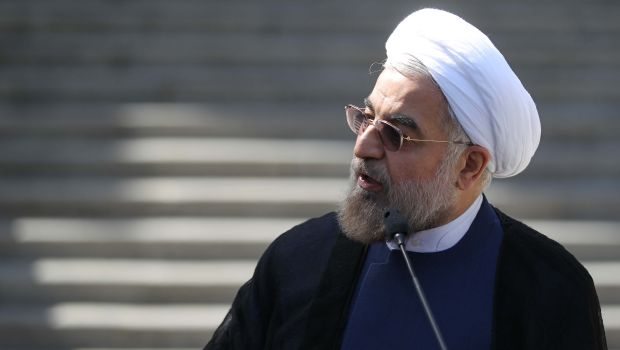London, Asharq Al-Awsat—President Hassan Rouhani has promised to promote artistic freedom in Iran during a meeting with a group of prominent Iranian artists in Tehran on Wednesday.
During the meeting, Rouhani said that unlike previous Iranian administrations, his government does not intend to impose restrictions on artists or their artistic output. The president said that artists “have the right to express their views.”
Rouhani’s remarks were warmly received by the audience, and his statements drew a number of rounds of applause.
The moderate cleric also warned of the social and economic risks facing Iranian society, including moral and economic corruption.
He said: “Unless we find solutions to these problems, the relationship between the government and people will deteriorate.”
The Iranian president also pointed to the difficulties Iranian artists are facing, issuing assurances that the “government will fulfill its duties within the framework of the constitution and support art as much as possible.”
Rouhani said that art is meaningless without freedom, and that artistic creativity is only possible in a free society.
Criticizing those who censor art, Rouhani stressed that artists are not a threat to the security of Iran and that the government should trust art and artists.
Iranian Minister of Culture Ali Jannati, who was present at the meeting, expressed his hope that cultural institutions in Iran would flourish during Rouhani’s presidency.
Jannati said: “Artists do not expect from the government to work miracles because they realize the enormous local and international political pressures it is under.”
The Minister of Culture is the third of Rouhani’s ministers to have received what Iranian lawmakers call the “yellow card” from Parliament—a term used to refer to MPs’ dissatisfaction with a minister’s answers during questioning.
“Artists are concerned about the disregard for art and the lack of interest amid the political bickering and economic problems,” Jannati added.
Iranian writer Reza Amirkhani, painter Ibrahim Haqi and female playwright Naghmeh Samini also delivered speeches at the meeting.
Rouhani reaffirmed that the “government will make good on its promises to artists,” adding, “I am very sorry for suspending the symphony and the national orchestra. The government will help them resume within the next few months.”
He also defended his minister of culture, saying: “We are proud of people, such as Jannati, who defend freedom.”
Rouhani discussed the artistic and cultural situation in the country, asking his listeners: “Why do not we give the responsibility for supervising cinema, books and music to professionals?”
“We have to trust each other. This is a time of trust. It is not the government’s duty to interfere in artistic affairs. Rather, its [the government’s] main duty is to work on key and national issues such as security and foreign policy,” Rouhani said.

